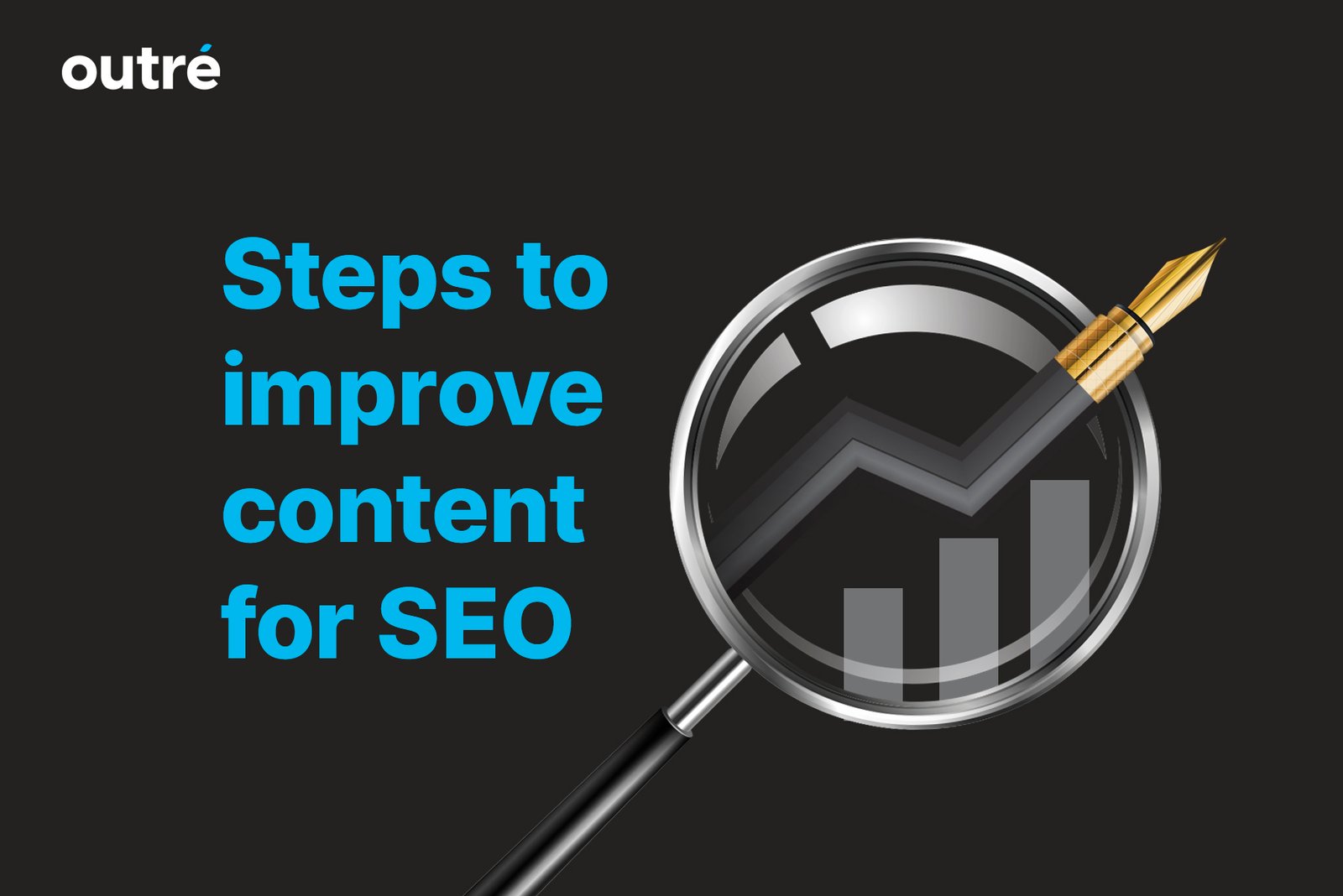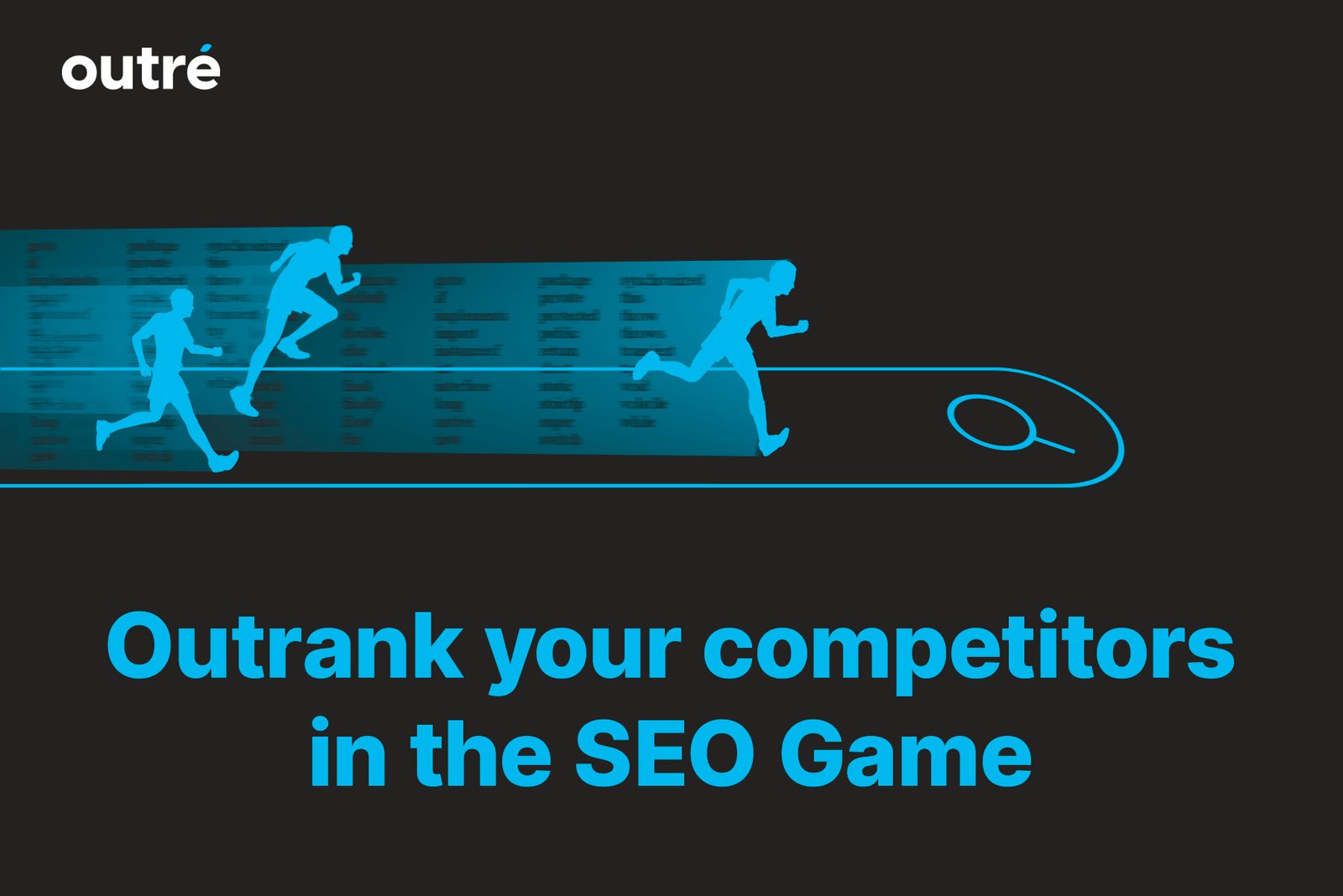
Steps to improve content for SEO

Introduction
Content is the an important component of SEO. It helps to improve your ranking in search engines, so you can get more traffic on your website and increase sales. Content is also a great way to build trust with your audience, as it helps them feel like they're getting more value from their time spent on a site. Many companies have difficulty developing effective content strategies because they don't understand what makes good content and how to create it. In this guide, we'll show you how easy it can be to improve your existing content for SEO, or create new content that will help boost rankings!
Keyword Research
Keyword research is the first step in Search Engine Optimisation, and you need to understand what people are searching for. Search engines prioritise keywords that users type into the search bar above all others. If a keyword has more searches than any other, it will rank higher.
When doing keyword research on your own website or blog, it's important to ask yourself these questions:
- What do I want my site or blog content to be about? This can include topics like "how-to" guides (like this one!), recipes and meal ideas, tips & tricks — anything that could attract readership from potential customers looking for those things!
Content Optimisation for On-page SEO
- Use the right keywords.
- Make sure you have the right keyword in the right place. The more closely related your keyword is to what you're trying to say, the better it will rank for that search term locally or nationally. For example, if I were writing about "how do you make money online," I'd probably want to include phrases like "make money" and/or "online business." But if my goal were only local SEO (the old Google version), then I'd probably want something like "sell stuff online" or maybe even "sell things."
- Use keyword density tools such as [Google's Keyword Planner] or [KWFinder]. These tools will help determine how many times each phrase should appear for it not only to be considered relevant but also meaningful enough to not just seem random text throughout each page or post!
Content should be Unique and Informative.
It's important to remember that your SEO content writing should be unique and informative. You want your website to stand out in the search results, so don't make it too similar to what other websites are doing.
You should also ensure that each piece of SEO-optimised content on your site is helpful, engaging and informative. A blog post about "How To Make Your Website More Visible" may be great for other people who are just starting with their blogs but wouldn't be helpful for someone who already has experience running one or two successful blogs (like me).
I also suggest including some elements that are entertaining as well - this could include videos or infographics, which help keep readers engaged throughout longer posts without feeling like they're being forced into reading something boring if they don't want to!
Use of Outbound Links in the Content.
Outbound links are links that point to other websites. They're essential for SEO because they help search engines find other relevant content on the web. To use outbound links in your content, you can link directly to other pages on your website or use it as part of an anchor text for a piece of text (e.g., "click here").
Proper Usage of Internal Links.
Internal links are essential for SEO. They help your site's rankings, but they also improve user experience. Internal links should be used for link related content and/or your website's most important pages. For example, if you have an article about "how to write a blog post," it might be worth linking back to the homepage with an internal link pointing at it (this way, users can easily find what they need). You can also use internal links when linking out from other pages on your site (for example: "Read more about this topic here").
You can get more traffic to your website by following these steps.
- Use keywords in the page title and body copy. It is an essential step because it helps you rank for those exact keywords, making it easier for people to find you! If you're unsure how, read this article about using keywords in your metadata: https://www.googleblog/2018/07/how-to-use-keywords-in-meta-tags/.
- Use images with alt text that contains the exact words as their captions (or even better). For example, if someone searches "dog" on Google Images and comes across an image of a dog wearing sunglasses while sitting next to another dog holding up a sign that says "I'm cute." The image would show up under "dogs," but if someone were looking specifically for images with dog names on them—such as "Boston Terrier"—they might not know what Boston means unless they read through all these other pictures first! So instead of having all these dogs with names like "Boston", why not just use one image where everyone knows who's being represented?"
Determine your target keywords.
Keywords are the words or phrases that people type into search engines. They help you find SEO content on the internet, also called search terms or search queries.
Keywords are a form of metadata (the technical term for information about your content) that can help you improve your SEO efforts. In other words, if you know what kind of content your target audience will want to read, then it makes sense to focus on creating that type of content to attract more readers interested in what you offer them, a.k.a. content optimisation.
Use synonyms and related terms.
Synonyms and related terms are two of the most important parts of your content strategy.
- Use synonyms for keywords that you want to rank for.
- Use synonyms for similar phrases, phrases with the same meaning but different words (like “smartphone” vs “mobile phone”), or even longer phrases like “the best smartphone on the market today."
- Consider using more than one word as a synonym when it makes sense due to context or style requirements; this also helps Google understand what kind of content you're creating by adding more information about each word in question into its search results.
Integrate your keywords into relevant parts of the page.
You can integrate keywords into several aspects of your content.
- The title tag should contain relevant keywords and phrases describing your writing content. If you have many keywords, use them in the same sentence or clause as they appear on search engines as one word (e.g., "Keyword 1 + Keyword 2 + Keyword 3").
- Meta tags are also important because they help people find your website when they search for specific phrases related to what you write about (e.g., "SEO Articles"). Try including two or three relevant meta tags per page, but keep it brief—meta keywords aren't allowed within body text!
- URLs also need some attention: make sure they include both internal and external links; this way, people who click through from other sites will see those pages too!
Make sure you're using the keywords naturally.
- Use keywords naturally.
- Please don't overdo it. If a keyword is too long, don't use it; if a keyword is too short, don't use it.
- Don't use too many keywords in one article. The best way to get your site ranked for a particular keyword is by writing high quality content relevant to that keyword's topic. Not just any old piece of text with lots of repeated phrases because they're all related somehow (or even related enough).
Focus on creating helpful, information-rich content.
Content is the key to success in SEO. It can be your biggest asset or your worst enemy if it's not done right.
The most important things you need to consider when creating content are:
- Relevance - Make sure that your writing is relevant and helpful. If it isn't, then there's no point in writing it! It can mean looking at similar topics on other sites or asking yourself whether a particular subject would be interesting for readers (if so, then go ahead!).
- Usefulness - Ensure that what you're sharing has value for potential customers who will see it through their search engine results pages (SERPs) when searching for products/services nearby or around the world too! If not, then why bother?
Make sure your website is accessible to both bots and humans.
It is a big one and one that you should be especially mindful of if you're writing for SEO purposes.
- Make sure your website is mobile-friendly: People go online with their phones in hand, so make sure your site will look good on those screens.
- Use good navigation and design: Users want to find what they need quickly, whether they're looking at an article or photo gallery or contacting support via email or live chat (or any other way). A sound navigation system keeps visitors moving through your site without getting bogged down by confusing menus or broken links.
Build helpful and credible links to your website.
There are many different ways you can use links to improve your website's content and ranking. The most important thing is to ensure that the links appear natural and relevant so they don't look like spammy crawlers are trying to game the system.
Once you've created high-quality content, it's time to get people talking about it! Here are some ideas for getting more traffic:
- Make sure that all your social media channels have a separate "follow" button on them and an effective sharing tool (such as Facebook) so people can share your content with their followers easily.
- Create an email newsletter where subscribers can sign up for updates from you or other websites related to the topic (for example, if there is an upcoming event). You could also include relevant links within these emails!
Compelling content and SEO require a well-formed strategy that considers your company's goals and the search behaviour of your intended audience. It's not a one-time effort; it's a continuous improvement process, and you need to keep an eye on what's happening in search engines so that you can adjust accordingly.
It's also important to remember that SEO marketing and SEO writing is about creating content that people want to read—and, more importantly, reading what they want! If all you do is write articles about gardening tips, then chances are nobody will ever find those articles because no one cares about gardening tips (unless they're obsessed with plants). But if you write about something interesting like how many times someone should have sex before getting pregnant or why cats love playing with string, then maybe someone will be interested!
Conclusion
You can use the data to improve search engine visibility by ensuring that keywords are placed throughout your site correctly and accurately so that their meaning is clear and matches that of the word itself. For more information on website content optimisation and SEO, follow us at @outredigital.You can also reach out to us at hello@outre.com.au / (08) 9321 7343.
RELATED POSTS
 Mar 08, 2024
Mar 08, 2024
Elevating Brand Engagement: Crafting Immersive Experiences through Augmented Reality (AR) in Marketing
READ







